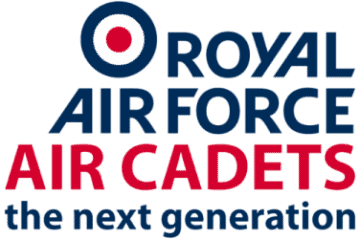The Royal Air Force has successfully completed a Voyager air-to-air refuelling flight, powered by an approximately 43% blend of Sustainable Aviation Fuel (SAF).
Flying from RAF Brize Norton, over the North Sea and via Farnborough on its return home, the Voyager aircraft also undertook air-to-air refuelling with Typhoons, as part of planned training.
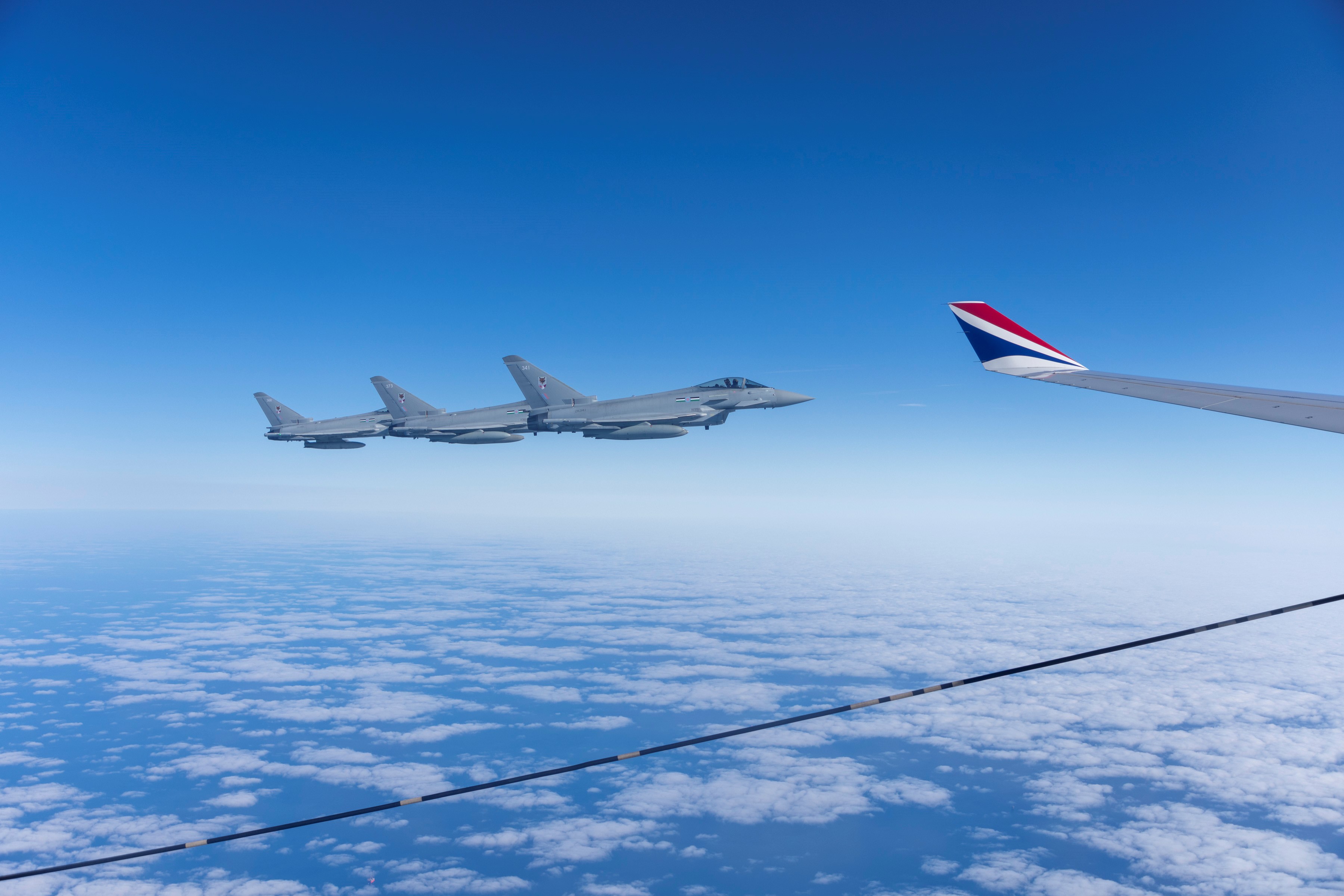
Made from waste-based sustainable feedstocks, such as used cooking oil, SAF reduces lifecycle carbon emissions by up to 80% compared to traditional jet fuel and will be key to reducing the RAF’s reliance on global supply chains and fossil fuels, while improving operational resilience.
This significant moment follows a series of recent milestones achieved by the RAF towards a sustainable aviation future, including the world's first RAF Voyager flight fuelled by 100% SAF.
Greater use of alternative and sustainable fuel can only lead to positive outcomes for Defence, the United Kingdom, and our collective endeavour against climate change.
This is not an easy undertaking by the RAF, but time and again we see that by working collaboratively with our partners across industry we can achieve crucial transformation.
Baroness Goldie,
Defence Minister
Part of a two-day industry led conference – Sustainable Skies World Summit - the launch of the new aviation decarbonisation roadmap outlines how commercial aviation will become more sustainable and commercially viable.
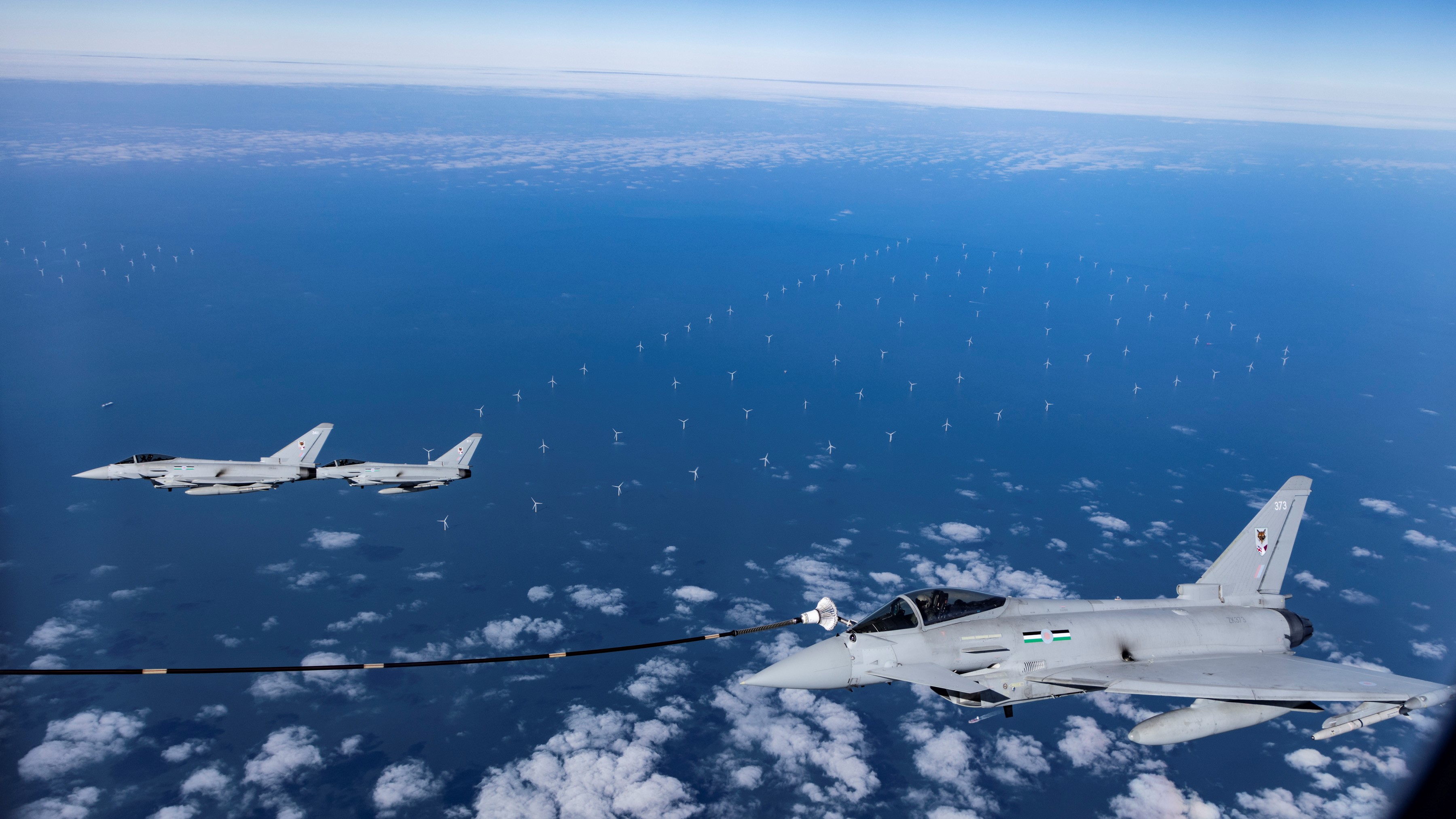
The annual event, hosted at Farnborough International Airport, brings together various partners from industry to showcase the latest developments in sustainable aviation technology and support efforts moving towards the implementation phase of meeting its net zero commitment.
Supporting the RAF’s ambitions to be Net Zero by 2040, the Voyager flight was part of an existing task from the Chief of the Air Staff to gather the required data to inform the longer-term transition away from fossil fuels.
The RAF has identified that using SAF and alternative aviation fuels will be critical for the future operational capability of the RAF and wider military aviation.
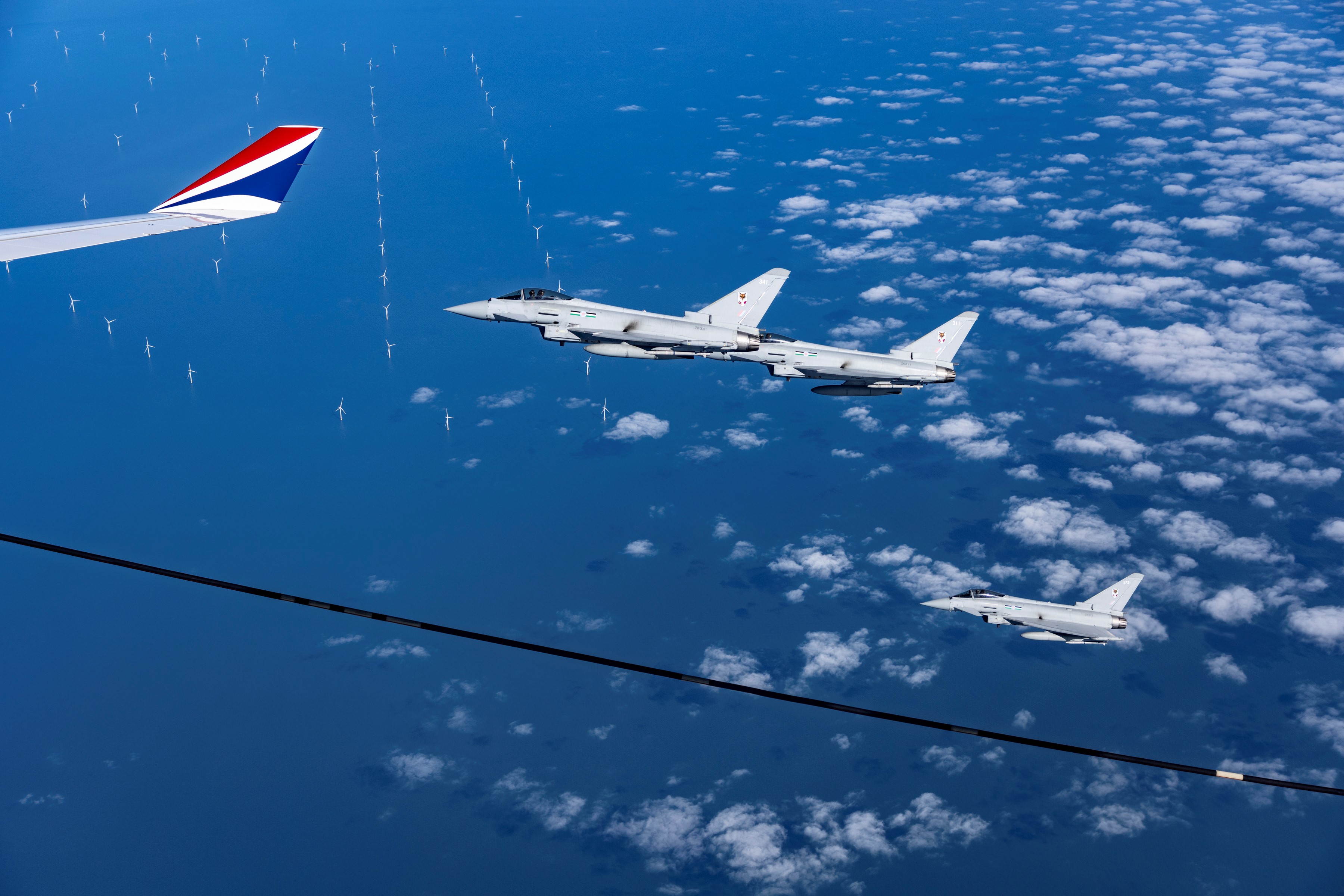
The UK's SAF programme is already one of the most comprehensive in the world and supports our vision to set the UK up to be a global leader in the development, production, and use of SAF.
Supporting the Prime Minister’s priority to grow the economy, new aviation technologies and fuels provide huge opportunities for economic growth, delivering jobs and prosperity across the country.
“The continued success of sustainable aviation fuel is reassuring to see. If we are to achieve our net zero goal by 2040 then exploiting these technologies is going to be an enormous but worthwhile endeavour.
Despite the challenge, the benefits of reducing our reliance on traditional supply chains and fossil fuels outweigh it.
The RAF is proud to be leading in this area and I welcome the announcement introduction of commercial uses of SAF.”
Air Vice-Marshal Paul Lloyd,
Chief of Staff Support and Chief Engineer
Providing increased reliability and range, the Voyager aircraft gives the RAF an enhanced capability in support of troop mobility, the movement of military assets, and supports UK air defence.
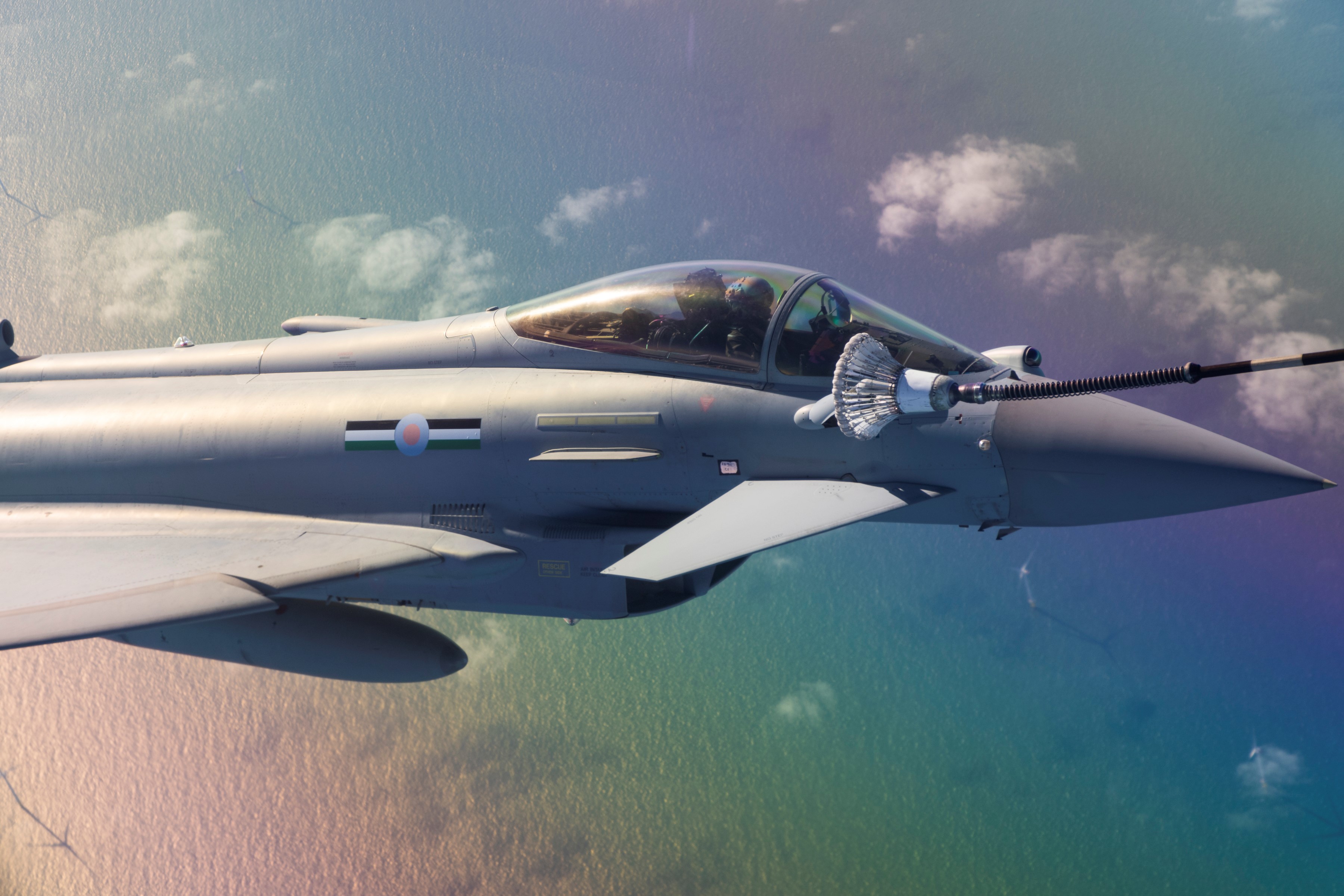
With a payload of 43 tonnes of freight and 291-seat passenger capacity, plus an aeromedical evacuation capability, Voyager also delivers flexibility in air mobility to the UK Armed forces in support of military and humanitarian operations.
During the two days of the Sustainable Skies World Summit, the Jet Zero Council – a partnership between industry and government with the aim of delivering at least 10% SAF in the UK fuel mix by 2030 and zero emission transatlantic flight within a generation - will also meet. The Jet Zero Council is driving the ambitious delivery of new technologies and innovative ways to cut aviation emissions.

